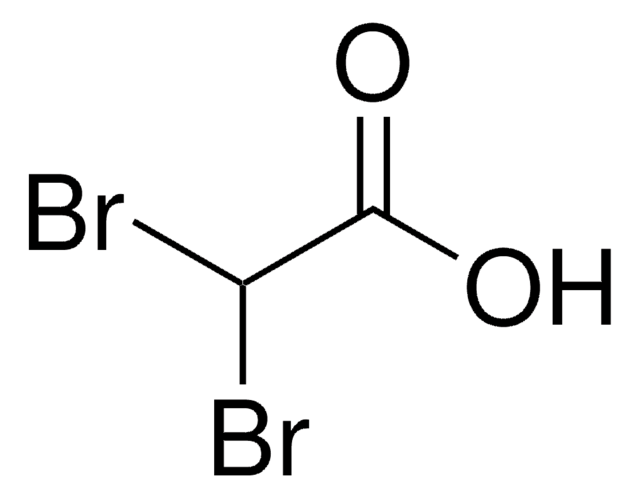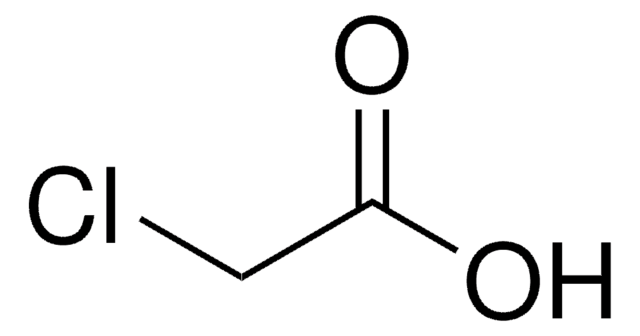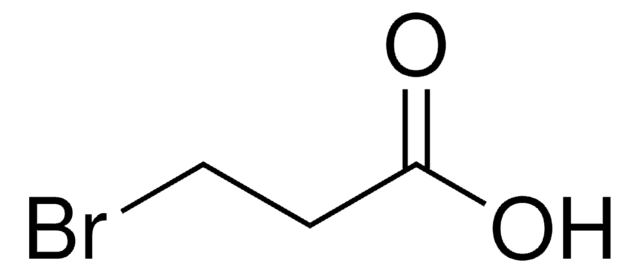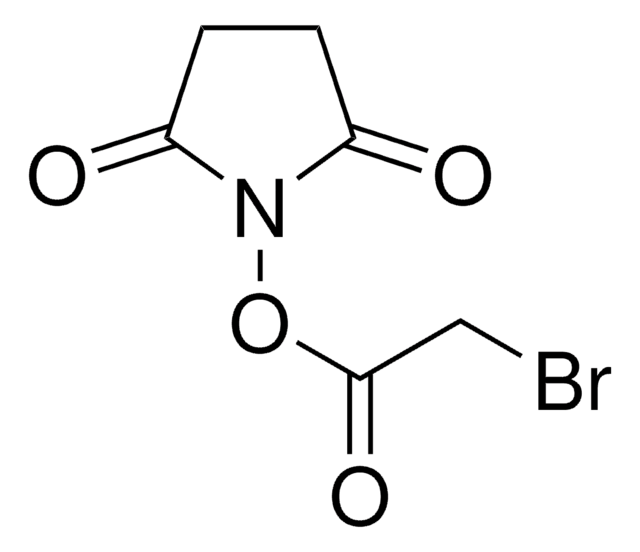17000
Bromoacetic acid
ReagentPlus®, ≥99.0%
Synonym(s):
α-Bromoacetic acid, Monobromoacetic acid
About This Item
Recommended Products
Quality Level
product line
ReagentPlus®
Assay
≥99.0% (GC)
≥99.0%
form
solid
impurities
≤1% dibromoacetic acid (1H-NMR)
bp
208 °C (lit.)
mp
46-49 °C
47-49 °C (lit.)
solubility
chloroform: 10%, clear, colorless
functional group
bromo
carboxylic acid
SMILES string
OC(=O)CBr
InChI
1S/C2H3BrO2/c3-1-2(4)5/h1H2,(H,4,5)
InChI key
KDPAWGWELVVRCH-UHFFFAOYSA-N
Looking for similar products? Visit Product Comparison Guide
Application
It can also be used:
- To synthesize (Z)-2-(cyclooct-4-en-1-yloxy)acetic acid.
- To synthesize α-bromo-phenylacetamide.
- To convert aromatic thiosemicarbazones to thiazolylhydrazones.
Legal Information
related product
Signal Word
Danger
Hazard Statements
Precautionary Statements
Hazard Classifications
Acute Tox. 2 Oral - Acute Tox. 3 Dermal - Acute Tox. 3 Inhalation - Aquatic Acute 1 - Eye Dam. 1 - Skin Corr. 1A - Skin Sens. 1
Storage Class Code
6.1A - Combustible acute toxic Cat. 1 and 2 / very toxic hazardous materials
WGK
WGK 3
Flash Point(F)
235.4 °F - closed cup
Flash Point(C)
113 °C - closed cup
Personal Protective Equipment
Choose from one of the most recent versions:
Already Own This Product?
Find documentation for the products that you have recently purchased in the Document Library.
Customers Also Viewed
Our team of scientists has experience in all areas of research including Life Science, Material Science, Chemical Synthesis, Chromatography, Analytical and many others.
Contact Technical Service











